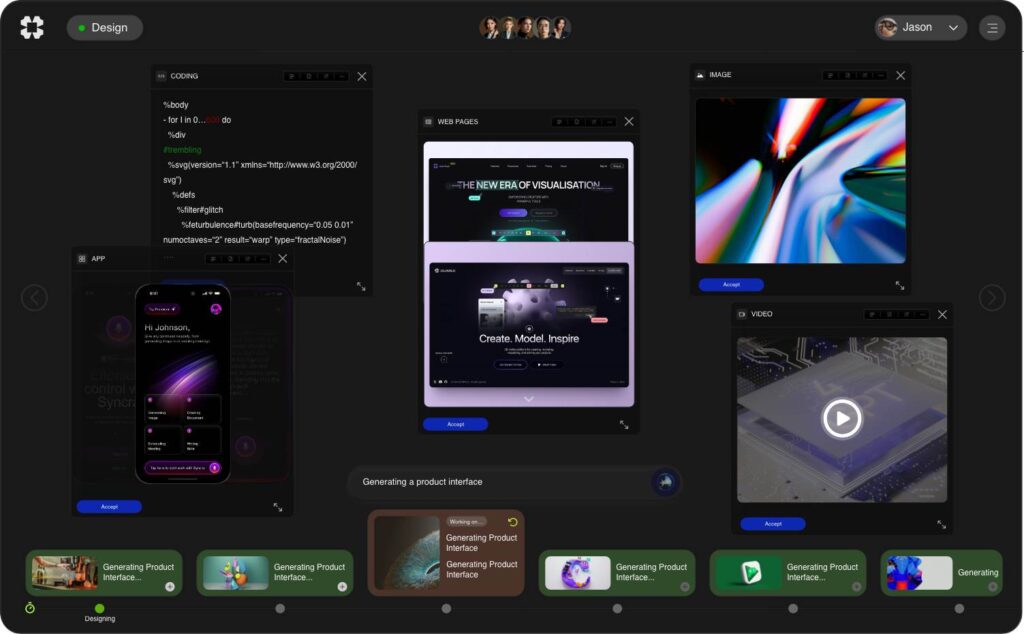In the rapidly evolving landscape of technology, the emergence of Intelligent Operating Systems (IOS) has brought forth a paradigm shift in how we manage and utilize computing resources. This shift towards autonomous operating system management and the integration of artificial intelligence (AI) in operating system updates represent a groundbreaking change for businesses, developers, and end-users alike. .
**The Evolution of Intelligent Operating Systems**
Intelligent Operating Systems articulate a revolutionary approach to traditional computing environments. Unlike conventional operating systems that require manual intervention for updates, configurations, and security patches, IOS are designed to learn from user behavior and system performance over time. They employ predictive analytics to customize user experiences and optimize resource utilization. .
This marks a significant move beyond simple automation. IOS contains sophisticated algorithms that enable them to adapt to changing conditions autonomously. They analyze vast amounts of data to make real-time decisions, reducing human error and enhancing system efficiency. As a result, organizations can streamline operations, improve productivity, and concentrate more on strategic goals rather than routine maintenance. .
**Autonomous OS Management: The Future Is Here**
The trend in autonomous OS management has gained traction as businesses seek to minimize operational risks and maximize efficiency. With an increasing number of devices and applications in use, the demand for seamless, automated processes has never been stronger. Autonomous management systems take over menial tasks such as resource allocation, performance monitoring, and fault detection. .
These systems leverage machine learning and AI algorithms to predict failures and recommend actions before issues escalate. For instance, if a server shows performance degradation, the system can proactively allocate additional resources or initiate a reboot based on historical data patterns. The result is a more resilient system with reduced downtime and enhanced reliability. .
A prime example of such technology is IBM’s Watson APM (Application Performance Management), which uses AI to analyze data across various infrastructures, providing insights and recommendations that lead to faster resolutions and improved application performance. This level of autonomous management is set to redefine the expectations around operating systems in enterprise environments. .
**Harnessing AI for Operating System Updates**
Traditionally, managing operating system updates has been a labor-intensive process, filled with potential pitfalls. Delayed updates can lead to security vulnerabilities, while overly aggressive updates may cause compatibility issues or system failures. However, the integration of AI in the update process brings significant improvements to how these tasks are managed. .
AI-driven updates can determine the optimal times for software patches and updates based on system usage patterns and performance metrics. They can also assess the potential impact of new updates before deployment, allowing administrators to mitigate risks effectively. .
For instance, Microsoft has increasingly incorporated machine learning to enhance its Windows Update experience. The system analyzes user data to deploy updates selectively or in waves, minimizing disruption and improving overall user satisfaction. The result is a smarter update system that not only secures systems but also ensures end-user productivity remains high. .
**Case Studies: Intelligent OS Applications in Various Industries**
Across various sectors, intelligent operating systems have emerged as game-changers. Here, we delve into specific industry applications that illustrate the tangible benefits they offer. .
1. **Healthcare Sector**:
In healthcare, operational efficiency can translate into saving lives. Intelligent operating systems can manage patient records, optimize resource allocation in hospitals, and aid in telemedicine applications. For example, robotic surgical systems controlled by IOS can enhance precision during procedures, minimizing human error and improving recovery time.
2. **Manufacturing**:
Manufacturers are leveraging intelligent operating systems for predictive maintenance and supply chain optimization. An autonomous management system can analyze machinery data, predict failures, and schedule maintenance before breakdowns occur, significantly reducing downtime. Companies like Siemens have integrated such systems within their factories, enabling them to maintain quality and efficiency.
3. **Retail**:
In retail, intelligent operating systems streamline inventory management and enhance customer experiences through data collection and analysis. For instance, an autonomous OS can analyze purchasing patterns and adjust stock levels in real time, ensuring that popular items are always available without overstocking. Companies like Walmart employ IOS in their supply chain management to keep inventory costs low while maximizing product availability.
4. **Finance**:
The finance industry is continually seeking ways to enhance security and efficiency. With the potential threats that arise due to frequent updates and system changes, autonomous OS management can serve as a protective barrier. AI algorithms can monitor transactions for inconsistencies, flagging potential fraud instantly while managing software updates automatically to mitigate vulnerabilities.
**Technical Insights into Intelligent Operating Systems**
Harnessing the power of intelligent operating systems requires an understanding of how they operate. Here are some critical technical insights into their functioning: .
1. **Machine Learning Algorithms**:
At the core of IOS are machine learning algorithms that help the system learn from historical data. They categorize user behavior, performance statistics, and system logs, allowing the OS to adapt its management style based on patterns and predictions. .
2. **Data Analytics**:
Big data analytics fuel the predictive capabilities of intelligent operating systems. By utilizing frameworks like Apache Spark or Hadoop, these systems can process vast amounts of data quickly, delivering real-time insights that improve decision-making. .
3. **Automation Frameworks**:
Automation frameworks such as Kubernetes and Docker are increasingly being integrated into autonomous OS management. These tools facilitate dynamic resource allocation and orchestration, enabling seamless scaling and management of applications across distributed environments. .
4. **Security Protocols**:
As operating systems become smarter, so do security threats. Employing advanced security protocols is essential in intelligent operating systems to protect data integrity. Techniques such as real-time encryption and behavioral analytics can detect anomalies and respond before threats materialize. .
**Conclusion: The Road Ahead for Intelligent Operating Systems**
The growth of Intelligent Operating Systems, fueled by advancements in AI and data analytics, signifies a future where computing management is not only automated but also anticipatory. With autonomous OS management increasingly becoming the norm, businesses must adapt to leverage the power of these systems. .
As we embark on this exciting new era, the challenges ahead—ranging from security concerns to the need for continuous optimization—present opportunities for innovation. Intelligent operating systems will continue to reshape how we think about computing, offering unprecedented levels of efficiency and effectiveness. Organizations that embrace these changes will thrive in an increasingly digital landscape, ensuring they remain competitive in an ever-evolving market. .
**Sources:**
1. “Intelligent Operating Systems: The Future of Computing,” Forbes.
2. “How AI is Transforming Operating System Management,” TechCrunch.
3. “The Benefits of Autonomous Systems in Business,” Harvard Business Review.
4. “What is Intelligent Automation and How It Works,” McKinsey & Company.
5. “Harnessing AI for Smart Operating System Updates,” InformationWeek.



























